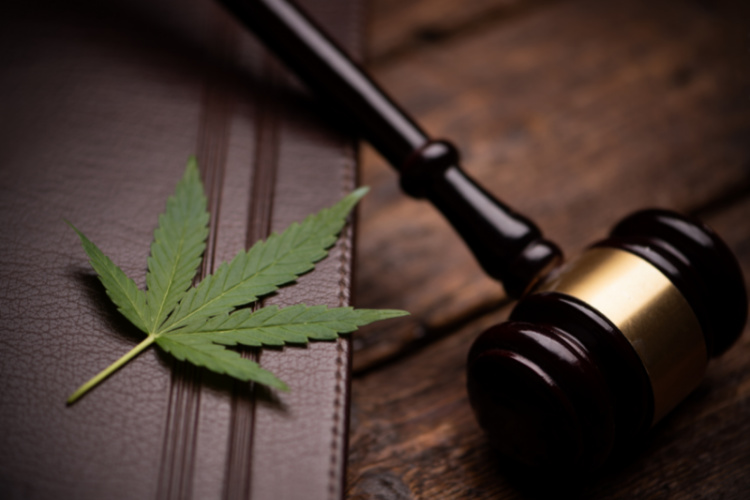It’s been over a decade since voters in the Grand Canyon State approved medical cannabis, passing Prop 203 by the narrowest of margins in 2010. Since then, of course, Arizona has gone all-in on cannabis, passing the adult-use Safe and Smart Act in 2020 (and allowing sales to begin a whiplash-inducing two months later, in January 2021).
While the state’s Arizona Medical Marijuana Act (AMMA)—the law formerly known as Prop 203—does spell out more employee protections than most comparable state laws, many working Arizonans worry that their legal cannabis use could end up costing them their jobs. Let’s get into the weeds, so to speak, with a look at where employee medical cannabis use rights in AZ currently stand.
Employee Medical Cannabis Use Rights in AZ: The AMMA’s Protections

When the AMMA was signed into law back in 2010, the ballot measure included specific protections for workers. For one thing, the law prohibited employers from firing, refusing to hire, or otherwise punish a person for holding a valid AZ medical cannabis card. That said, the law includes exceptions, such as:
- Failing to terminate or discipline the medical cannabis cardholder would cause the employer to lose a monetary or licensing-related benefit under federal law or regulations (such as federal Department of Transportation regulations which prohibit a person required to have a commercial driver’s license to drive a commercial vehicle when using cannabis for any reason). Therefore, any employee who needs a commercial driver’s license to work is not protected by the AMMA.
- The employee uses medical cannabis at the workplace or during the hours the employee is on the job, or even has it in their possession.
- The medical cardholder was impaired by cannabis at the workplace or during the hours of employment.
That said, the AMMA’s protections were considered groundbreaking at the time. But the reality is more complicated. For one thing, employers aren’t required to accommodate cannabis use, possession, or impairment at the workplace. And as a 2019 case involving a woman who claimed she was improperly fired from her position at Wal-Mart indicates, employers who in good faith believe they terminated an employee over their impairment at work can not then be sued by that former employee.
Employee Medical Cannabis Use Rights in AZ: To Test or Not to Test?

After the passage of the AMMA, legislators added Arizona’s Drug Testing of Employees law in an attempt to nudge the ball back towards employers’ courts. In the case we just referenced, the Wal-Mart employee’s termination was backed up by a drug test confirming her cannabis use, despite her being a registered medical cardholder.
But while many of us consider a drug test to be a simple yes-or-no affair, the law actually allows some wiggle room. Because Arizona hasn’t established a baseline for the amount of cannabis metabolites—the by-products of cannabis use that linger in the bloodstream—it means that a positive drug test isn’t in and of itself a reason to fire an employee who holds a valid medical cannabis card.
This doesn’t mean all the power rests in employees’ hands. An employer can reassign a worker from a safety-sensitive position if they sincerely believe that the employee is engaged in drug use of any kind—legally prescribed or not—and that the drug could cause an impairment of job performance.
So, where does that leave Arizona employees? With the adult-use Safe and Smart Act in place, employers need to actually document a worker’s cannabis use on the job if they want to terminate that person.
Employee Medical Cannabis Use Rights in AZ: In Conclusion

The Safe and Smart Act, while allowing adult-use cannabis use, doesn’t materially change the pre-existing employment laws we’ve discussed today. But given the changing cultural landscape, many employers are now seriously reconsidering whether they want to keep testing for cannabis or enforcing rigid workplace policies.
Of course, until there’s federal rescheduling of cannabis, Arizona’s medical cannabis patients—who, as of 2020, numbered over 3% of the state’s population—will continue to experience some legal jeopardy. But we’re optimistic that as the real possibility of federal drug policy reform approaches, those medical cannabis patients will have reason to breathe a sigh of relief.
